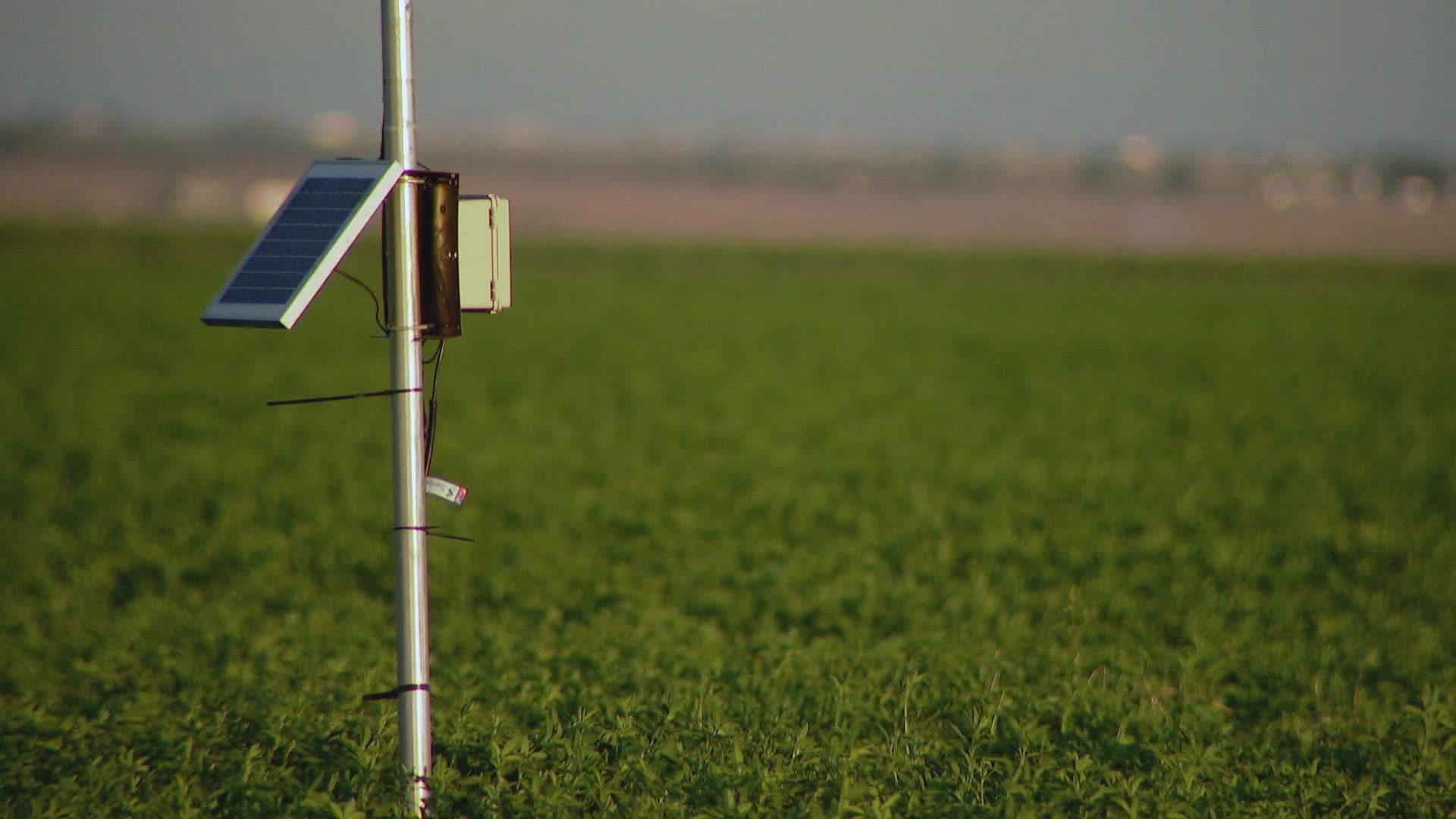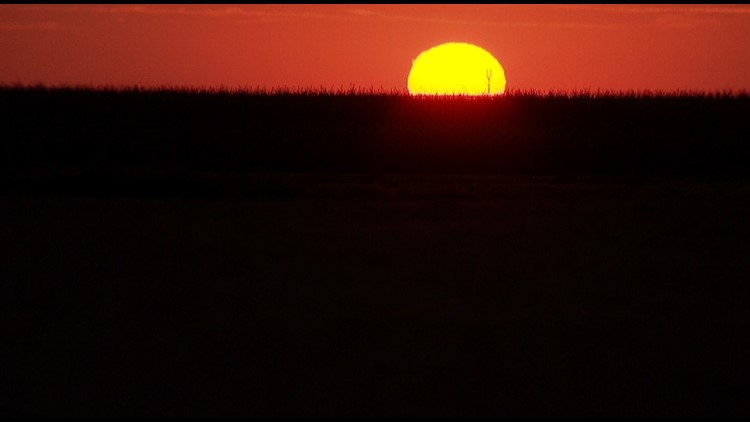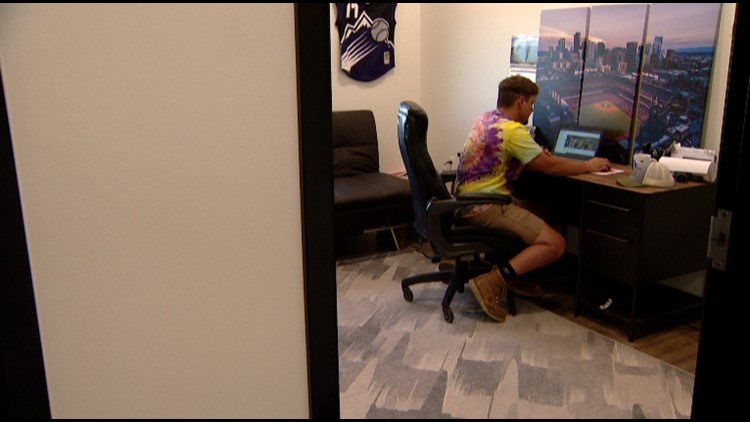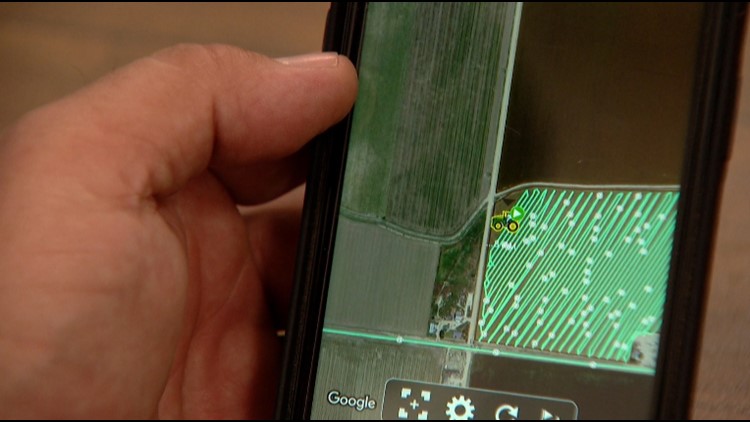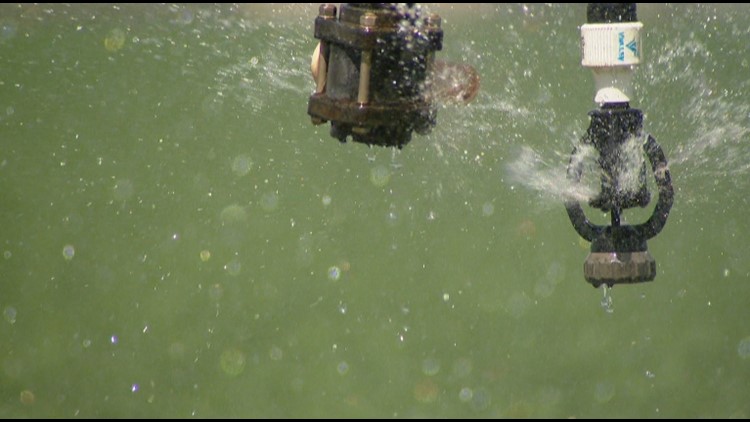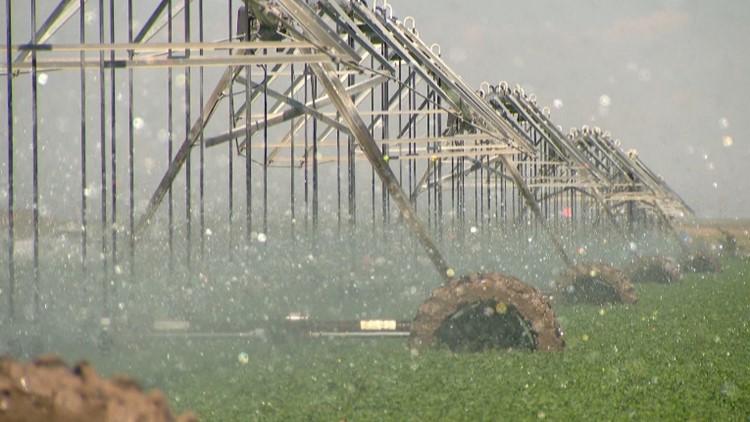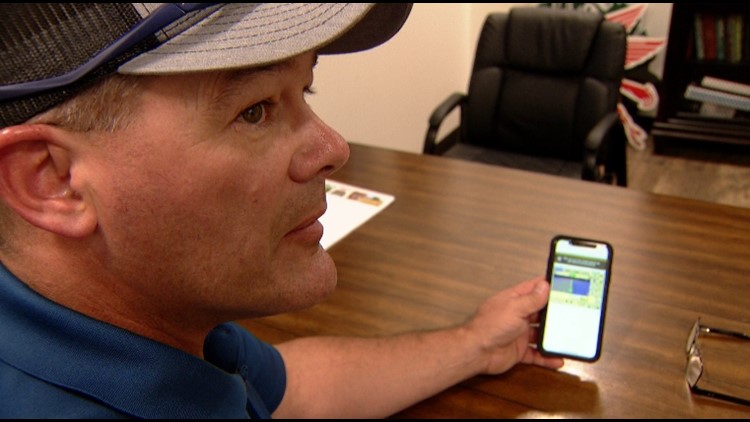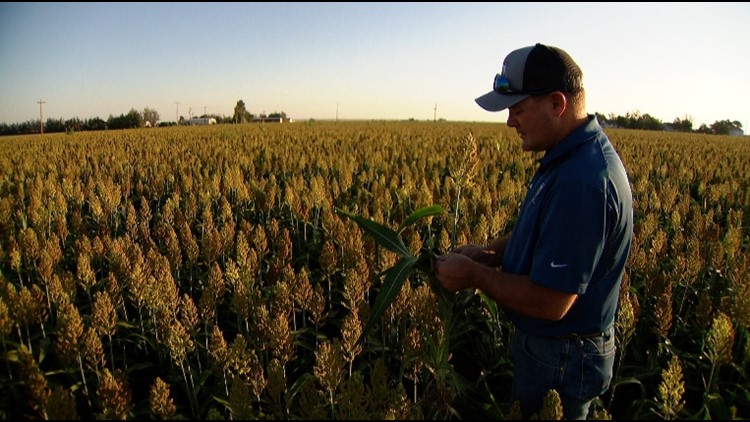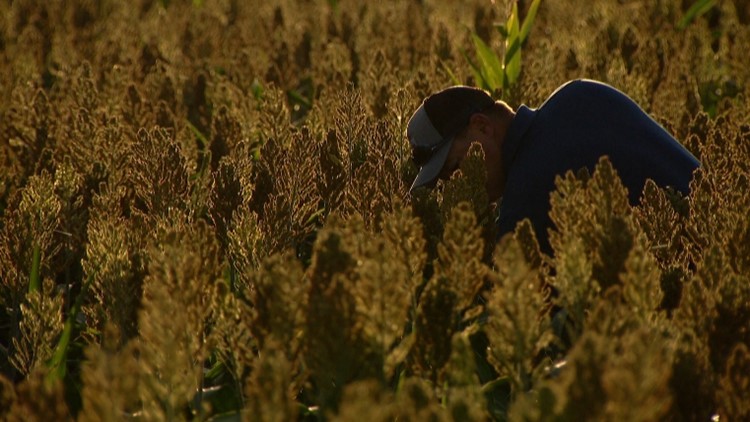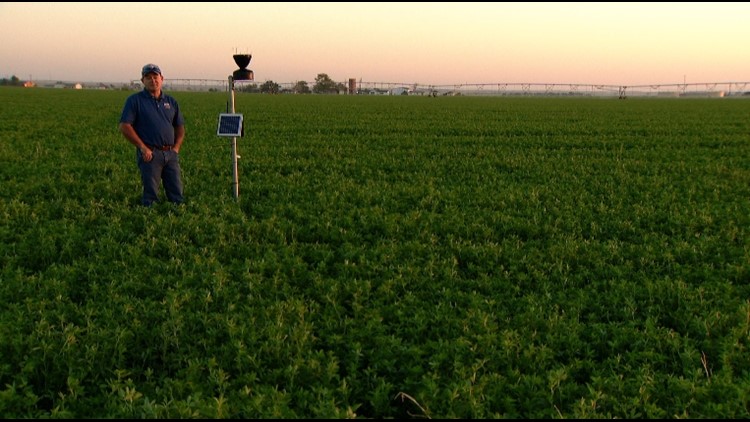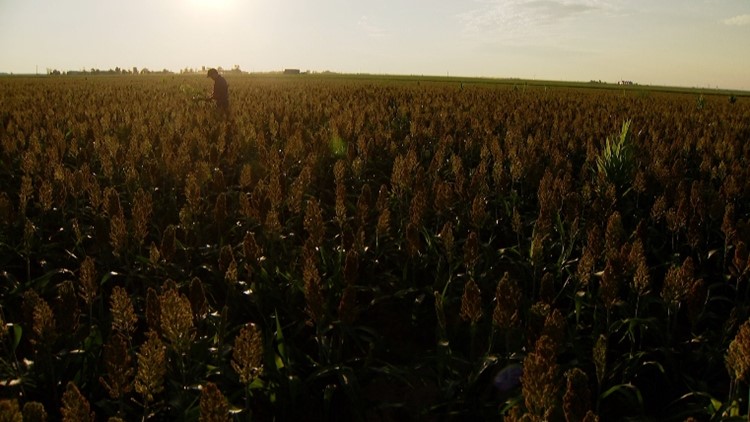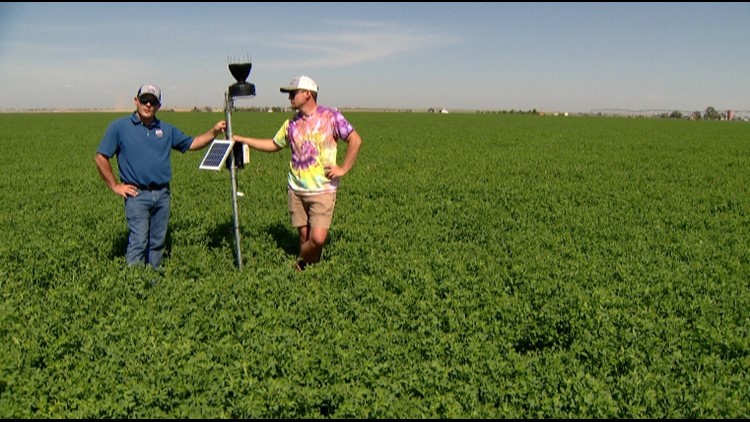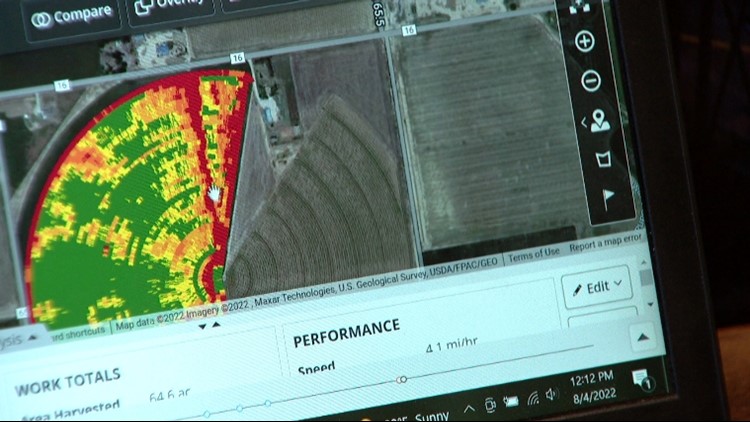WELD COUNTY, Colo. — Marc Arnush inspects his fields around dawn at his family farm near Keenesburg.
"This is maybe my most favorite time of the day," Marc said. "I try to do this three times a week -- every crop, every field."
For about three decades, Marc has been doing things a certain way on his farm.
His parents came to Weld County in the 1950s to plant sugar beets. He talks about tradition while looking at pictures of his family from more than 70 years ago.
"I think these pictures on the wall are always a constant reminder of where we've been, how we used to do things, how we've evolved," Marc said.
His son Brett works alongside him every day, and he's thankful for it.
"I'm farming with my best friend," Marc said.
Brett said he's like a best friend -- with a better way.
"Agriculture is deeply, deeply rooted in history and tradition," Brett said. "My story is a little bit different. I didn't ever want to come back to the farm."
Going to school for Environmental and Natural Resource Economics, Brett said he thought he was taking a different path. But after working as an intern with a technology company, he decided to come back to help his father make a transition into doing things a different way.
Father and son find the future of farming
"That's life. I mean, we have to take risks," Brett said. "We have to take chances, 'cause if we don't, we're just going to stay stagnant."
Brett introduced his father to soil moisture probes -- solar-powered sensors reaching deep into the ground, tracking and sending data to their phones.
"The alfalfa crop may be, to the common eye, might look like it's doing fine. Well, actually, we can tell you exactly what it's doing all the way to three feet under the soil," Brett said.
At first, Marc was not buying it.
"It took us a little while to understand this, and I challenged Brett hard of -- look, I'm not going to depend on a machine to tell me how to farm," Marc said.
That's not the point, according to Brett.
"He initially views it as, 'Well I've been farming wrong,' and that's not the truth," Brett said. "Now, we're farming better,"
The key, Brett said, is using precious water as efficiently as possible.
"We used to start irrigating corn on the fourth of July. Why? Because we always irrigate corn on the fourth of July," Marc said.
Now, Brett said the soil moisture probes can tell them exactly when to let the sprinklers flow.
"How much water is being taken up by the crop, how much water is being applied by the sprinkler and how much is just evaporating from the sun?" Brett said.
Marc was convinced by Brett.
"He pushed back hard and said, 'You've got to trust the technology. You've got to trust the process.' And at the end of the day, he was right," Marc said.
Information with intuition changes everything, according to Marc.
"That's been the best innovation of my farming career," Marc said. "For the first time, not only can we see inside the soil profile, we can actually see inside the plant."
Now, Marc and Brett are working to have the soil moisture probe communicate with the automated, moving sprinkler.
"Where the two technologies can talk together and speed up and slow down the pivot as it goes through the field," Marc said.
Farming on the Arnusch Farm is no longer being done the way it used to be. When the tractor starts to plow, Marc can monitor the progress and use of fuel from his phone.
"You can literally see him moving through the field," Marc said while showing a map with the GPS tracker. "I can even ping the equipment, so I can actually look at his screen."
When Marc goes to check the grain bins, Brett can monitor the temperature inside from his office.
"I can view them, and we're a mile-and-a-half away," Brett said.
When it's harvest time, Brett can see the crop yield as the machine goes through the field, with a colored chart highlighting production.
"We can see on the inside where the green is that maybe those are most productive acres," Brett said.
Drones are available to spray crops over large distances. Marc said technology allows them to run a 2,000-acre farm with just a few workers.
"I think I've learned over time that it's smart to pivot," Marc said.
The farm of the past transformed into the farm of the future.
"Technology isn't everything. It's a lot now, but we still have to be a farmer," Brett said.
SUGGESTED VIDEOS: Storytellers

